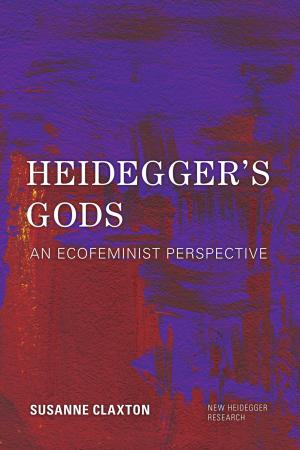The Moral Psychology of Anger
Nonfiction, Health & Well Being, Psychology, Emotions, Religion & Spirituality, Philosophy, Ethics & Moral Philosophy, Mind & Body| Author: | ISBN: | 9781786600776 | |
| Publisher: | Rowman & Littlefield International | Publication: | December 21, 2017 |
| Imprint: | Rowman & Littlefield International | Language: | English |
| Author: | |
| ISBN: | 9781786600776 |
| Publisher: | Rowman & Littlefield International |
| Publication: | December 21, 2017 |
| Imprint: | Rowman & Littlefield International |
| Language: | English |
The Moral Psychology of Anger is the first comprehensive study of the moral psychology of anger from a philosophical perspective. In light of the recent revival of interest in emotions in philosophy and the current social and political interest in anger, this collection provides an inclusive view of anger from a variety of philosophical perspectives. The authors explore the nature of anger, explain its resilience in our emotional lives and normative frameworks, and examine what inhibits and encourages thoughts, feelings, and expressions of anger. The volume also examines rage, anger’s cousin, and examines in what ways rage is a moral emotion, what black rage is and how it is policed in our society; how berserker rage is limited and problematic for the contemporary military; and how defenders of anger respond to classical and contemporary arguments that expressing anger is always destructive and immoral.
This volume provides arguments for and against the value of anger in our ethical lives and in politics through a combination of empirical psychological and philosophical methods. This authors approach these questions and aims from a historical, phenomenological, empirical, feminist, political, and critical-theoretic perspective.
The Moral Psychology of Anger is the first comprehensive study of the moral psychology of anger from a philosophical perspective. In light of the recent revival of interest in emotions in philosophy and the current social and political interest in anger, this collection provides an inclusive view of anger from a variety of philosophical perspectives. The authors explore the nature of anger, explain its resilience in our emotional lives and normative frameworks, and examine what inhibits and encourages thoughts, feelings, and expressions of anger. The volume also examines rage, anger’s cousin, and examines in what ways rage is a moral emotion, what black rage is and how it is policed in our society; how berserker rage is limited and problematic for the contemporary military; and how defenders of anger respond to classical and contemporary arguments that expressing anger is always destructive and immoral.
This volume provides arguments for and against the value of anger in our ethical lives and in politics through a combination of empirical psychological and philosophical methods. This authors approach these questions and aims from a historical, phenomenological, empirical, feminist, political, and critical-theoretic perspective.















